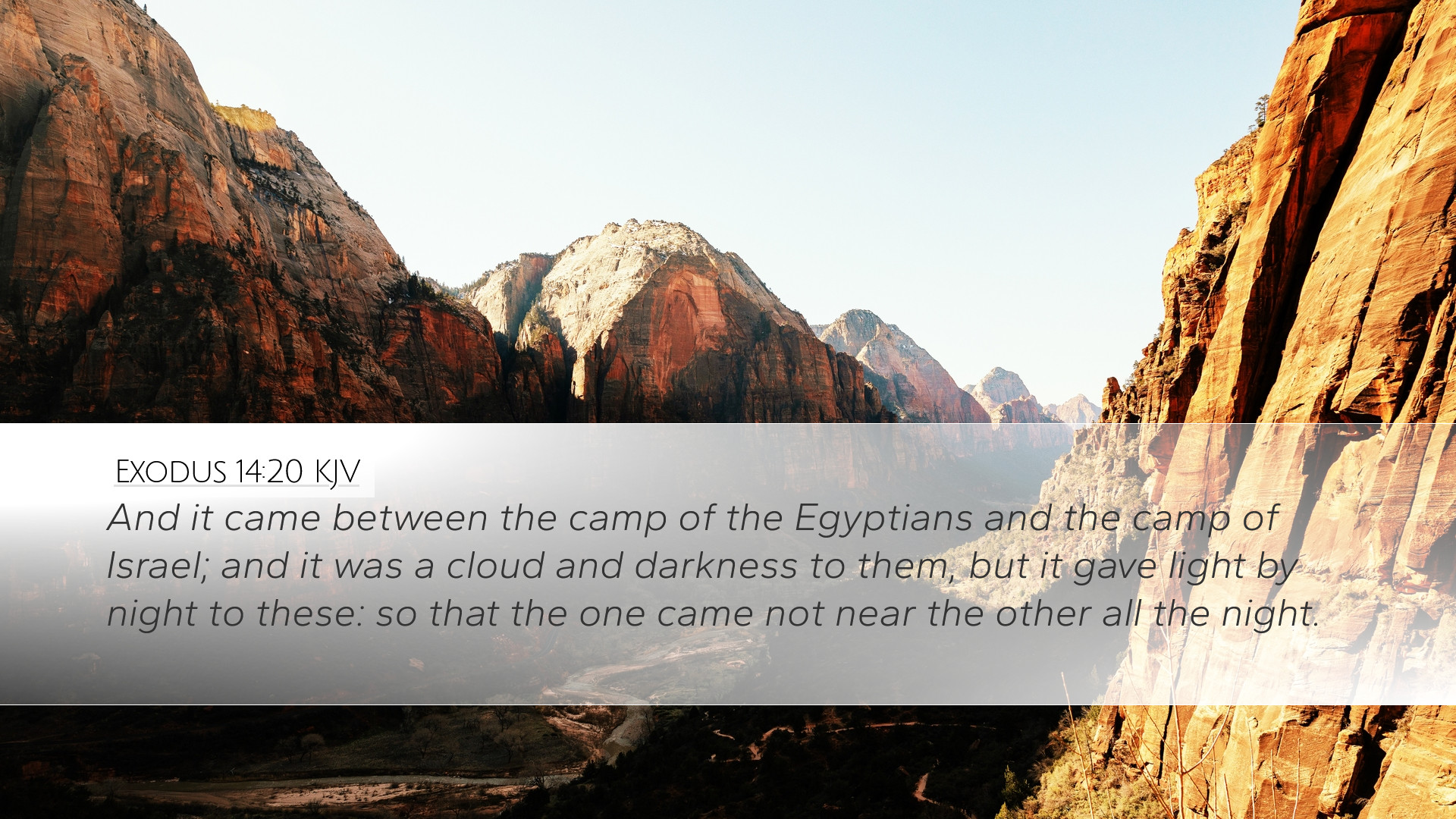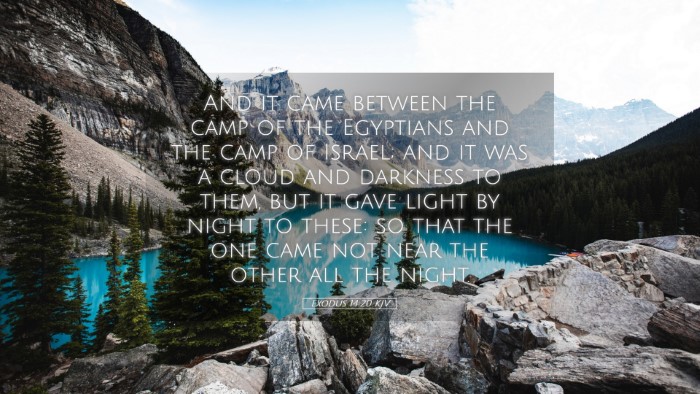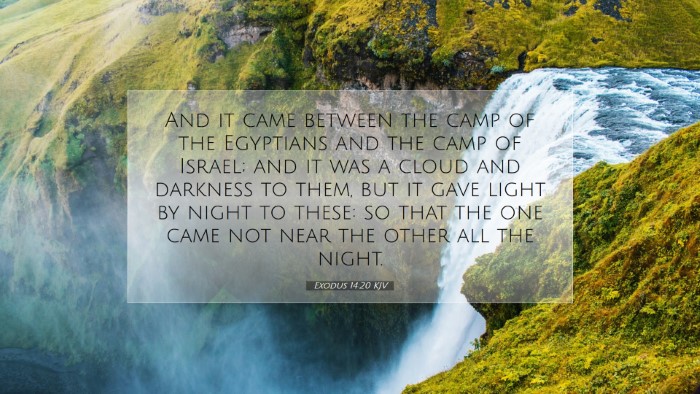Commentary on Exodus 14:20
Verse Context: Exodus 14:20 states, “And it came between the camp of the Egyptians and the camp of Israel. And it was a cloud and darkness to them, but it gave light by night to these: so that the one came not near the other all the night.” This verse captures a pivotal moment in Israel's escape from Egypt, illustrating God’s protective presence and divine intervention.
Exegesis and Theological Insights
Divine Protection: The text underscores God as the ultimate protector for Israel. Both Matthew Henry and Albert Barnes emphasize that the cloud acted as a divine barrier. It separated the Israelites and the Egyptians during the night, preventing the Egyptians from pursuing the Israelites. This physical separation was not only a means of protection but also a powerful reminder of God’s ability to control circumstances for His people's benefit.
Symbolism of Darkness and Light: The duality of the experience – light to the Israelites and darkness to the Egyptians – is significant. Adam Clarke notes that this phenomenon symbolizes the differing paths of the two groups: the Egyptians, representing oppression and sin, remained in darkness, while the Israelites, chosen and redeemed, embraced divine light. This reflects a broader biblical theme where light signifies God's presence and guidance.
The Role of Faith in Crisis
Faith Under Duress: The Israelites found themselves in a dire situation, with the Red Sea before them and the Egyptian army behind them. Here, Matthew Henry reminds us that faith often emerges most powerfully in crisis. God's guidance in sending the cloud illustrated that even in their fear and uncertainty, the Israelites were not abandoned. Their faith in God's promises was essential as they prepared to move forward.
God’s Sovereignty and Power
Manifestation of God’s Power: The presence of the cloud signifies God's sovereignty over nature and His power over enemies. Albert Barnes comments on the significance that it not only provided protection but symbolically demonstrated that God was orchestrating the events that led to Israel's deliverance. The natural phenomena created by God are tools for His purposes, affirming His dominion over every situation.
Application for Believers
Trusting God’s Guidance: For contemporary believers, this passage serves as an encouragement to trust in God's presence during challenging times. Adam Clarke suggests that just as God guided Israel through darkness and danger, He continues to guide His people today. Trusting that God’s light is present amidst confusion and fear encourages believers to step forward in faith.
Separation from Enemies: The barrier between the Egyptians and the Israelites illustrates God's intention to protect His people from their enemies. It highlights the importance of spiritual separation from those who oppose God's purpose. Scholars remind us that believers are called to remain distinct in actions, thoughts, and choices that align with God’s will, which often necessitates distancing from influences that pull away from divine guidance.
Conclusion
Summary of Key Themes: In summary, Exodus 14:20 not only provides historical insight into the exodus narrative but also profound theological themes relevant to the faith journey. God’s protective presence, the contrasting experiences of light and darkness, and the necessity of faith amidst adversity highlight essential truths. As believers reflect on this passage, they are challenged to embrace God’s guidance, trusting in His sovereignty to lead them through their own crises.
Further Reflections
Reflective Questions:
- What areas of your life need greater trust in God’s guidance?
- How can we better discern God’s presence and light in our darkness?
- In what ways can we encourage others to seek God's protection during times of crisis?
Prayer: As we conclude this study, let us pray for a deepened understanding of God’s sovereignty and peace amidst our trials, promising to walk faithfully in the light He provides.


